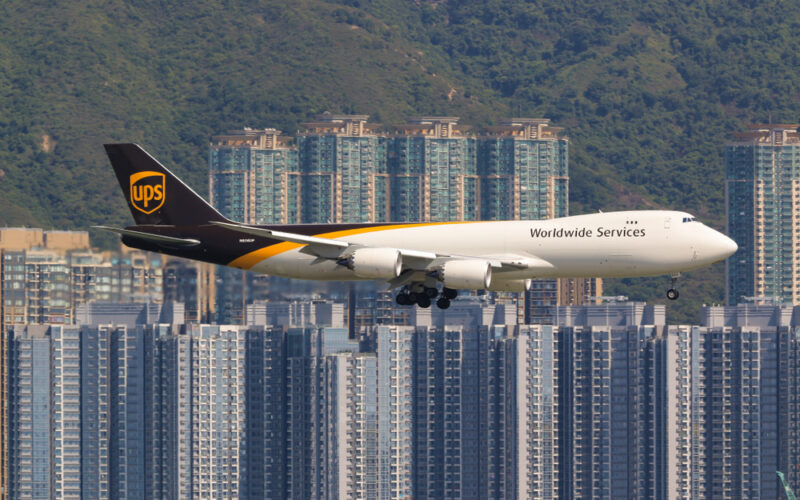United Parcel Service (UPS) has reached an agreement with Airport Authority Hong Kong (AAHK) to develop a new air freight hub facility at Hong Kong International Airport (HKG).
The airport authority is confident that constructing the new UPS complex will further increase Hong Kong’s air cargo capacity and reinforce its status as the world’s leading air cargo hub. Expected to be completed in 2028, the new cargo facility will be capable of handling close to one million tons of express freight annually.
The new UPS hub facility will be constructed on a section of land covering around 216,000 sq ft (20,000 meters) at the airport and will offer direct airside access for easy aircraft handling.
“We have long embraced the growing importance of e-commerce in global trade and have been taking forward several strategic new facilities in order to capture the new opportunities and further sharpen our competitiveness in air cargo,” said Hong Kong Airport CEO Fred Lam. “UPS’s new facility is another important addition to our portfolio of cargo facilities which will help the airport strengthen its position as a leading global air cargo and e-commerce fulfillment hub.”
Hong Kong International Airport handled a total of 4.2 million tons of cargo in 2022, leading the facility to maintain its status as the world’s busiest airport for international cargo volumes. When the airport’s three-runway usage system operates in full, it will be able to handle an annual cargo volume of 10 million tons.
Hong Kong International Airport currently has several major air cargo projects underway to cement its position as the world’s leading air cargo terminus. While the airport’s current express cargo handling capacity is being expanded, it has just seen the completion of a premium logistics center focusing on e-commerce.
With the addition of the new UPS hub to its cargo-handling capabilities, the airport hopes to attract new customers to its facilities while ensuring ample spare capacity for existing operators to grow in the future.
UPS is currently the world’s second-largest express freight cargo airline (after FedEx) and is the third-largest air cargo carrier overall (after FedEx and Qatar Airways). The airline operates a fleet of 290 aircraft, which includes the Boeing 747F, 757F, and 767F. The airliner also operates the Airbus A300F and the McDonnell Douglas MD-11F.

